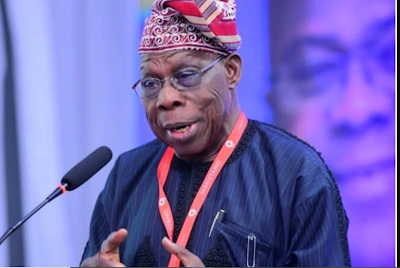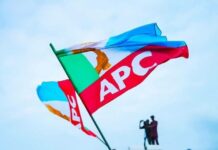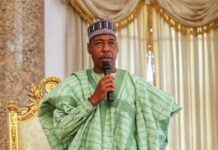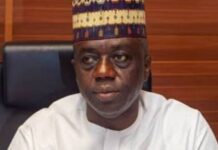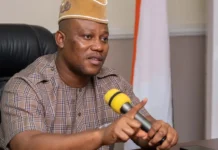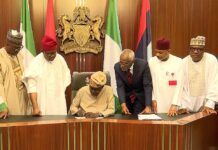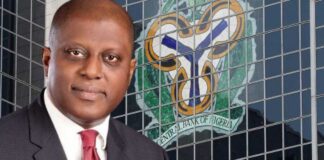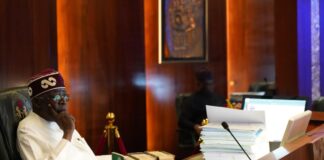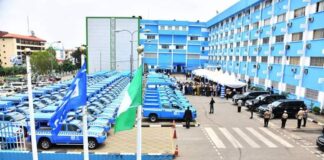Former Nigerian President, Chief Olusegun Obasanjo has revealed that the Peoples Democratic Party (PDP) lost the 1998 local government election in Ogun state because he turned down plans by the party to bribe the police and officials of the Independent National Electoral Commission (INEC).
Obasanjo who was a member of the PDP from its inception in 1998 rose to become president of Nigeria on the ticket of the party between 1999 and 2007. He was Board of Trustees member, and remained till the build-up to the 2015 general elections when he publicly tore his membership card on 16th February 2015 in Abeokuta, the Ogun state capital.
Recalling the 1998 electoral defeat of the PDP in his home state, the elder statesman said party leaders of the party had notified him that a certain amount of money had been arranged to be given to the police and INEC in connection with the election, but he rejected the proposal on the supposition that that INEC personnel and policemen are government workers who earn steady monthly salaries.
The former president revealed this at the high-level consultation on ‘Rethinking Western Liberal Democracy in Africa’ which began on Monday, November 20, at Olusegun Obasanjo Presidential Library (OOPL), Abeokuta.
Obasanjo said he is not always comfortable with the phrase, ‘Nigerian factor’, when discussing democracy and other issues affecting development, noting that he came across the ‘Nigerian factor’ slang when the nation held the first local government election and his party (PDP) lost because politicians blamed him for the loss due to his unwillingness or refusal to take cognizance of the Nigerian factor while planning for the election.
He insisted that the Western liberal democracy being practised in Africa has not given a thought to human nature and the African situation when foisting it on Africans, asserting that a hungry man will sell his vote for just N1000.
He recalled: “When things go wrong, you said the Nigerian factor. The first thing I learnt in politics was this thing I called the Nigerian factor. In 1998, we had the first local government election. We had parties, and here in Abeokuta, we met in my office and they came up and said, ‘look, this is money for INEC, money for police.’ At a stage I said, ‘what nonsense! Is police not being paid, and INEC too?’
“They said ‘that’s how we do it. I said ‘you cannot do that.’ So, they didn’t do that. And of course, we lost all the local governments. We lost all. And then they came to me and said, ‘Baba, you see? If you had allowed us to do it the way we used to do it, we would have won.’ m. And I felt guilty.
“During the next election which was State Assembly, I just stayed in my house. I said ‘well, do whatever you want to do, I will not be part of it’. So, I didn’t even go. But, the result was the same. One of the people who got money didn’t even distribute it to where he was supposed to distribute it.
“When you are hungry, whatever anybody tells you cannot go in. Poverty is a great enemy of democracy. Ignorance or lack of education is a great enemy of democracy. And we seem to be deliberately fomenting poverty and lack of education.”

